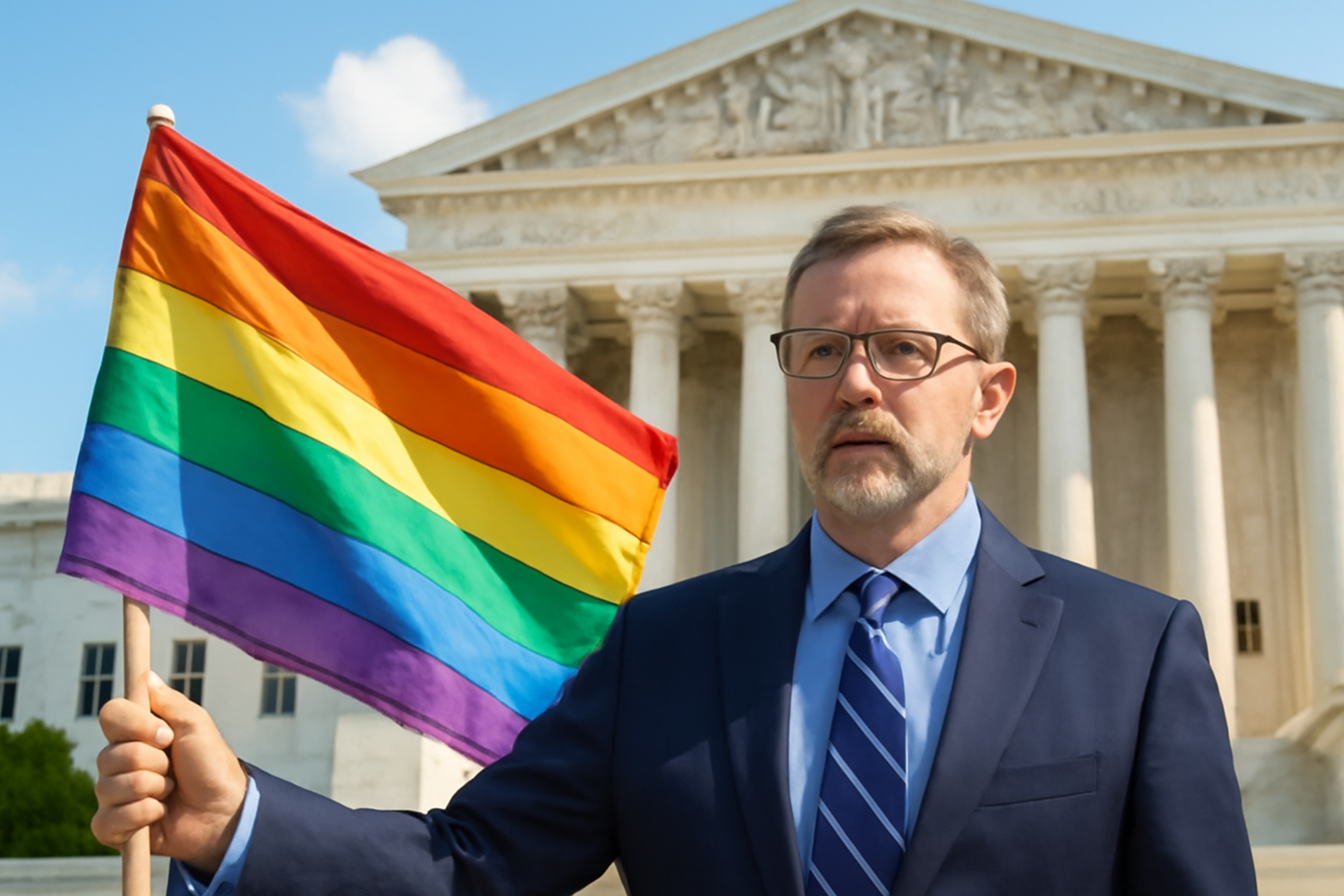
The recent Supreme Court ruling on what many have termed a "reverse discrimination" case has sparked significant discussion and debate across various communities, particularly within the LGBTQ+ community. This landmark decision has implications that reach far and wide, affecting policies, societal norms, and the ongoing discourse around equality and affirmative action.
Background of the Case
At the heart of the case was a lawsuit challenging the fairness of policies aimed at increasing diversity within educational institutions. The plaintiff argued that these policies discriminated against certain groups by providing preferential treatment to others, thereby constituting a form of "reverse discrimination." This case brought to the forefront the delicate balance between creating equitable opportunities and maintaining fairness for all individuals.
Ultimately, the Supreme Court's decision favored the plaintiff, ruling that the existing measures were indeed discriminatory. The ruling emphasized that while diversity remains a compelling interest, the methods employed must not infringe upon the rights of any group.
Key Takeaways from the Ruling
1. Reaffirmation of Equal Treatment: The court reiterated the importance of treating all individuals equally under the law, emphasizing that any form of discrimination, even if well-intentioned, is contrary to the principles of justice and equality.
2. Narrow Tailoring of Policies: Institutions are now required to ensure that their diversity policies are narrowly tailored. This means that any measures aimed at promoting diversity must be carefully designed to avoid unnecessary infringement on the rights of others.
3. Impact on Affirmative Action: The ruling casts a critical eye on affirmative action practices, encouraging a re-examination of how they are implemented in various sectors. This could lead to significant changes in how institutions approach diversity and inclusion.
4. Broader Implications for Discrimination Laws: The decision sets a precedent that may influence future cases related to discrimination, potentially reshaping the legal landscape regarding what constitutes fair treatment under the law.
5. Encouragement for Alternative Approaches: The ruling encourages institutions to explore alternative, non-discriminatory ways to achieve diversity and inclusion objectives. This calls for innovative thinking and a commitment to equal opportunity for all.
Implications for the LGBTQ+ Community
The LGBTQ+ community is particularly attentive to this ruling, as it underscores the ongoing struggle for equal rights and the complexity of institutional policies. Many fear that the decision might be used to challenge other affirmative action measures, including those designed to support LGBTQ+ individuals in educational and professional settings.
However, it's also an opportunity for the community to advocate for approaches that promote diversity without resorting to exclusionary practices. By engaging in open dialogue and collaboration, the LGBTQ+ community can help shape policies that reflect true inclusivity and fairness for all.
Moving Forward
As society grapples with the implications of this decision, it's vital to remain focused on the broader goals of equality and inclusion. Stakeholders across all sectors must work together to develop policies that reflect the values of fairness and justice, ensuring that diversity efforts do not inadvertently marginalize any group.
This ruling serves as a reminder of the importance of vigilance and advocacy in the pursuit of a truly equitable society. Whether through legislation, community engagement, or institutional reform, the path forward will require commitment, creativity, and a deep understanding of the diverse needs of all community members.
By learning from this ruling and its consequences, we have the opportunity to create a more just and inclusive future. It is a call to action for all who are committed to equality, demanding that we continually evaluate and improve our approaches to diversity, ensuring that they serve the interests of everyone, without exception.
Related Posts
Pride Month in Latin America: Protests and Demands for Equality
**Celebrating Pride and advocating LGBTQ+ rights in Latin America** Pride Month in Latin America was a lively mix where celebration met activism. Communities united, not just throwing a party but making a stand—demanding equality and pushing governments toward better protection and rights recognition. Throughout Latin America, pride events erupted in marches and cultural displays, each with a c [...]
Transgender Erasure Actions Implemented by National Park Service
```html Trump administration's impact on national park service and transgender recognition The Trump administration made notable moves in undermining transgender representation, which included directing agencies like National Park Service not include "T" and "Q" when they refered “LGBTQ” in any official communication. This move seems part a broader plan by this administration aimed at reducin [...]
Drag Night Extravaganza: Daddies & Baddies at Atlantic City's Anchor Rock Club
Atlantic City, NJ, isn't just about its casinos and boardwalk—it's a hub bursting with energy and entertainment. One event that truly captures this spirit? The "Daddies & Baddies" drag night at Anchor Rock Club. This vibrant night celebrates amateur drag in all its glory, offering a kaleidoscope display where creativity and community unite. If you're looking where inclusivity and creativity take [...]